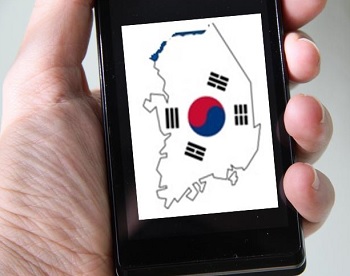This move will have a direct impact on app developers all around the world.
Facebook is preparing its announcement of a new measurement tool for social media marketing firms that may help the network to be able to offer better competition for Google and to allow the company to taken on a greater share of the smartphone based ad marketplace.
The announcement is expected to be made at the Facebook annual F8 developers conference on March 25.
The new measuring service will give brands using Facebook social media marketing a better ability to know whether or not an app was actually downloaded as a result of having been exposed to an ad on the social network. This, according to a recent report that was made by The Information. This tool will not be limited to measuring the performance of ads purchased through Facebook. It will also help to better understand the performance of ads that have been served on other mobile apps, as well.
Should Facebook encourage enough use of this social media marketing environment, the outcome could be massive.
Strong partnerships of this nature could end up presenting some initial challenges to rivals such as Twitter, iAd at Apple, and Google, which are direct competition within the mobile advertising space and that are highly unlikely to want to give up any of their market share to Facebook. Overall, if this plays out the way that The Information has suggested, it could mean that Facebook could become a much more important advertising resource for brands, particularly when it comes to desktop and mobile ads.
to rivals such as Twitter, iAd at Apple, and Google, which are direct competition within the mobile advertising space and that are highly unlikely to want to give up any of their market share to Facebook. Overall, if this plays out the way that The Information has suggested, it could mean that Facebook could become a much more important advertising resource for brands, particularly when it comes to desktop and mobile ads.
This would also help to provide further explanation for the launch of Facebook Audience Network, in 2014, when it gave mobile marketing firms the ability to broaden their Facebook campaigns to reach other mobile apps by way of its targeting data.
This also helps to show why Facebook is adding support to its Atlas ad server, which provides social media marketing advertisers with the ability to use consumer data from Facebook in order to target them over non-Facebook ads and websites. It also underscores the importance of the “Topic Data” data analysis tool that it recently launched.
Mobile commerce is experiencing strong growth throughout South Korea
Mobile commerce in South Korea is expected to experienced rapid growth in the coming years. The Boston Consulting Group was commissioned by Google Korea to examine the country’s mobile commerce sector. The report produced by this examination shows that South Korea is becoming a prominent market for mobile payments, with more consumers opting to shop for and purchase products online and in physical stores with their smartphones and tablets.
Report predicts that the mobile economy will account for 10% of South Korea’s GDP by 2017
The report shows that South Korea’s mobile Internet economy reached $28 billion in terms of revenue in 2013. This accounts for 2% of the country’s gross domestic product. By 2017, mobile commerce is expected to account for 10% of the country’s gross domestic product, reaching the $40 billion revenue point. There are many factors contributing to this growth, but the mobile application and content industry is expected to help power growth in the mobile commerce space.
Mobile marketing is also on the rise, as more consumers rely on their smartphones and tablets
 As mobile commerce continues to grow, many companies are expected to place more focus on mobile marketing. More consumers are beginning to rely on their mobile devices for more than just communication. These consumers are constantly browsing social media sites and consuming content through their devices. This makes them attractive targets for advertisers that want to engage a mobile audience. Mobile marketing can help power the growth of mobile commerce by exposing consumers to products that they may be interested in purchasing online.
As mobile commerce continues to grow, many companies are expected to place more focus on mobile marketing. More consumers are beginning to rely on their mobile devices for more than just communication. These consumers are constantly browsing social media sites and consuming content through their devices. This makes them attractive targets for advertisers that want to engage a mobile audience. Mobile marketing can help power the growth of mobile commerce by exposing consumers to products that they may be interested in purchasing online.
Consumers would give up basic luxuries in order to keep their mobile devices and access to the Internet
According to the report from the Boston Consulting Group, some 75% of South Koreans would give up newspapers, chocolates, and fast food in order to continue accessing the mobile Internet. Many people would give up what they consider basic luxuries just to keep their mobile devices. This may be good for mobile commerce, which will continue to grow as consumers become more involved in their mobile devices.
 to rivals such as Twitter, iAd at Apple, and Google, which are direct competition within the mobile advertising space and that are highly unlikely to want to give up any of their market share to Facebook. Overall, if this plays out the way that The Information has suggested, it could mean that Facebook could become a much more important advertising resource for brands, particularly when it comes to desktop and mobile ads.
to rivals such as Twitter, iAd at Apple, and Google, which are direct competition within the mobile advertising space and that are highly unlikely to want to give up any of their market share to Facebook. Overall, if this plays out the way that The Information has suggested, it could mean that Facebook could become a much more important advertising resource for brands, particularly when it comes to desktop and mobile ads.
 As mobile commerce continues to grow, many companies are expected to place more focus on
As mobile commerce continues to grow, many companies are expected to place more focus on 